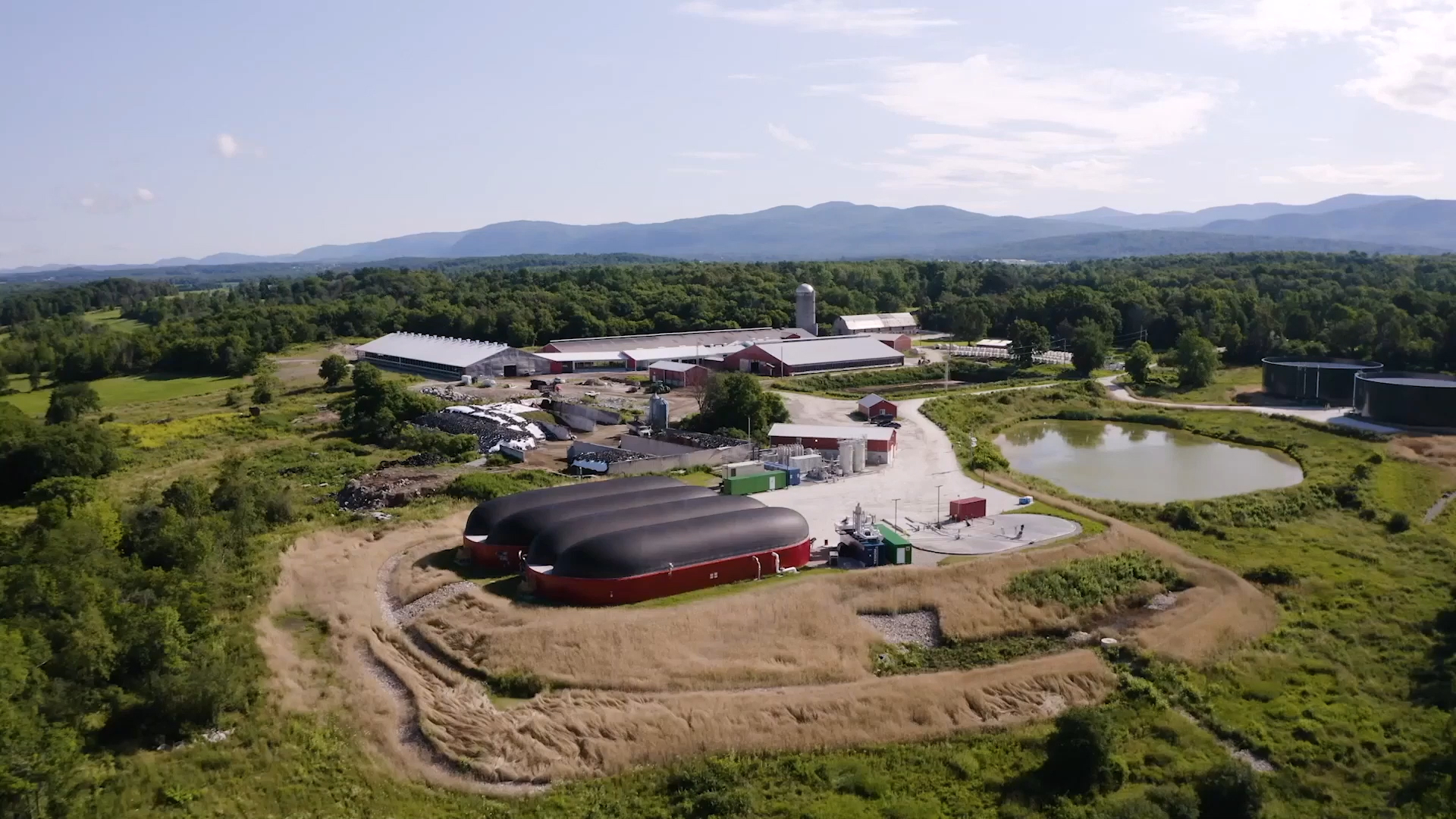AstraZeneca announces innovative partnership with Vanguard Renewables to decarbonize its United States sites
AstraZeneca announces innovative partnership with Vanguard Renewables to decarbonize its United States sites
- Agreement will deliver renewable natural gas to U.S. research and manufacturing sites, starting in Newark, Delaware, and accelerate progress on global emissions reduction targets
- New partnership leverages food and agricultural waste to power sites, contributing to the circular economy
WILMINGTON, Del.--(BUSINESS WIRE)--In a first-of-its-kind collaboration, AstraZeneca (AZN) is partnering with Vanguard Renewables to enable the delivery of renewable natural gas (RNG) to all of its sites in the United States by the end of 2026.
From June 2023, AstraZeneca will begin purchasing RNG produced by Vanguard Renewables for its Newark Campus in Delaware, where the Company packages 26 medicines for distribution across the U.S. and makes medicine formulations for global supply. By 2026, this collaboration will enable as much as 650,000 million British thermal units (MMBtu), or 190,500 megawatt hours (MWh) per year, of RNG to be used across AstraZeneca’s U.S. sites, equivalent to the energy required to heat more than 17,800 U.S. homes for a year.
Pam Cheng, Executive Vice President of Global Operations & IT and Chief Sustainability Officer at AstraZeneca, said: “We recognize the interconnection between the health of people and the planet, and are committed to driving deep decarbonization across our operations and value chain. Our innovative partnership with Vanguard Renewables in the U.S. is an illustration of how we are collaborating at scale to deliver sustainable science and medicines, as part of the transition to net zero health systems and a circular economy.”
AstraZeneca is taking a science-led, patient-centric approach to deliver improved health outcomes with a lower environmental footprint. As heat and power are critical to the manufacture of medicines, the decarbonization of healthcare requires access to clean sources of heat, such as RNG. This new partnership with Vanguard Renewables is an important milestone in delivering emissions reductions in line with AstraZeneca’s flagship Ambition Zero Carbon program. The Company is on track to reduce greenhouse gas (GHG) emissions from its global operations (Scope 1 and 2) by 98% by 2026 from a 2015 baseline, and by 2030, AstraZeneca aims to halve its entire value chain footprint on the way to becoming science-based net zero by 2045 at the latest. The use of RNG at AstraZeneca sites in the U.S. will further enable the company’s transition to 100 percent renewable energy for heat and power.
This agreement will utilize Vanguard Renewables Farm Powered® process, allowing Vanguard Renewables to work with dairy farmers and food and beverage manufacturers, retailers and distributors to produce RNG using farm-based anaerobic digestion (AD) from food and dairy cow manure. Once the RNG is produced and captured through AD, it will be injected into existing natural gas infrastructure for use in AstraZeneca medicines research and manufacturing processes.
Through the partnership with Vanguard Renewables, AstraZeneca will access high quality RNG from three on-farm anaerobic digester facilities across the U.S. for the next 15 years or more.
Neil H. Smith, Chief Executive Officer at Vanguard Renewables stated: “Vanguard Renewables is excited to be partnering with AstraZeneca on this transformative business-to-business clean energy solution. AstraZeneca has set a very ambitious and challenging net zero target, which is a benchmark for their sector and other global corporations. We strongly believe this partnership will provide a path for other like-minded companies to join us on the journey towards global decarbonization.”
This collaboration will utilize food and waste from local and family-owned farms, supporting rural communities across the U.S. By capturing methane from dairy operations that would have otherwise ended up in the atmosphere, this partnership also reduces pollution from the farming sector. Vanguard Renewables has been working with multi-generational dairy farms and food and beverage manufacturers since 2014, providing sustainable solutions to greenhouse gas emissions challenges by diverting food waste from landfills and sequestering on-farm emissions. Vanguard’s Farm Powered process provides dairy farmers across the U.S. with an additional revenue stream via land lease, supports regenerative agriculture practices, and helps to ensure that these farms will be operating for years to come.
Notes:
Anaerobic Digestion
Inedible or unsaleable food and beverage waste from the manufacturing and retail sectors is collected, sorted, depackaged on-site, and combined with dairy farm manure in a sealed biodigester tank. Once combined in the biodigester, microorganisms that naturally occur in manure digest the waste, converting sugars, fats and other compounds into biogas. Harnessing the waste’s energy captures as much as 95 percent of the potential greenhouse gas emissions that would result if food and beverage waste were sent to a landfill or if the farm manure were field-applied. The process produces biogas that is upgraded to pipeline-quality RNG and injected into the existing pipeline infrastructure on-site, displacing traditional fossil fuels. The RNG is then used for heating and cooling or can be used to make Compressed Natural Gas (CNG) for vehicles. The by-products of the anaerobic digestion process include a low-carbon and nutrient dense fertilizer (digestate) that reduces the farm’s dependency on chemical fertilizers, and a dry by-product which is used for animal bedding. When food and beverage manufacturers send their organic waste to a Farm Powered site and purchase the RNG created by their waste to power their plants, they are creating a closed-loop solution that helps to address Scope 1 and 3 emissions in their business practices.
About AstraZeneca
AstraZeneca is a global, science-led biopharmaceutical company that focuses on the discovery, development and commercialization of prescription medicines in Oncology, Rare Diseases and BioPharmaceuticals, including Cardiovascular, Renal & Metabolism, and Respiratory & Immunology. Based in Cambridge, UK, AstraZeneca operates in over 100 countries, and its innovative medicines are used by millions of patients worldwide. For more information, please visit www.astrazeneca-us.com and follow us on Twitter @AstraZenecaUS.
Contacts
Media Inquiries
Brendan McEvoy +1 302 885 2677
Jillian Gonzales +1 302 885 2677
US Media Mailbox: usmediateam@astrazeneca.com

